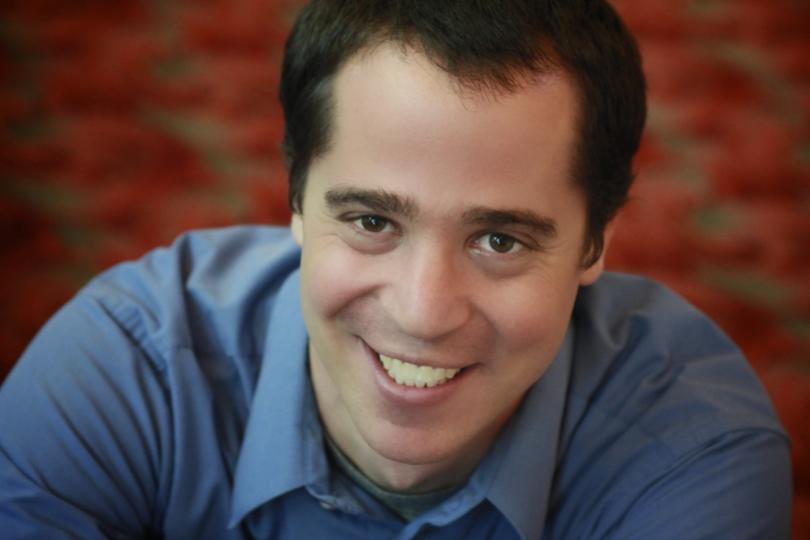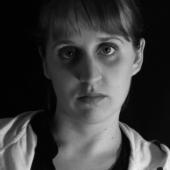Unfortunately Cyclical History with Andrew Rosendorf

“I’m working on the Inquisition play and a play about my dog, those are the two things I’m working on now. So totally different ends of the spectrum,” playwright Andrew Rosendorf told me over the phone. I caught the recent McKnight fellow between rehearsals for his play Tranquil at Luna Stage in New Jersey.
Recently, he was at the Playwrights' Center, working on Swine, a play set in the Spanish Inquisition. “The working title comes from a derogatory term for Jews,” Rosendorf said. “It also means a pig, which for Jews is an animal that is trafe - not kosher, essentially thought of as dirty - and the Inquisition was all about rooting out the infection of heresy that was causing people to become unclean in their souls.”
A Question of Faith
It’s not his first foray into the time period. A number of years ago, he wrote a short play set during the Inquisition called Orlah. “Basically, two parents of a newborn child who were in hiding from the inquisition and had to choose whether or not to circumcise their child while their house was being searched, “ said Rosendorf. “They had to decide if it was more important, to circumcise their child and keep their covenant with God, but the child may make noise and they may be found out because of that. Most of the play happens in complete silence, except for a little Hebrew and a little bit of Spanish.”
“I think for me, that play came out of a desire to examine aspects of faith,” said Rosendorf. “I’m sort of what you would classify as a 'bad Jew.' I’m often trying to figure out my own skepticism or rejection of faith. What are situations in which I can challenge that for myself? Also, what is faith globally and why does it have such a strong impact on people? That lets me dip my toe into the Inquisition at that time.”
Rosendorf found himself fascinated by the history, and considered writing a longer work set in that time. “I started researching; this was maybe six years ago, five years ago. And I was like, ‘Man, I’m the only one interested in the Spanish Inquisition. Who wants to sit through a historical play about this?’” So the play was shelved and he moved on to other projects.
“And then the election happened in November,” said Rosendorf. “And when the Muslim ban and the talk of this ‘wall’ became a reality, the comparisons to what was going on in Spain from the 1480s on to what is going on in our country are very similar.”
The Importance of Distance
As an artist who wants to engage with the present day, Rosendorf finds it very useful to look to the past. “It is difficult, I think, to successfully present issues in a way that everybody can perceive them if you’re trying to set it in or around current politics. There’s something about removing those discussions and putting them in the late 1400s that seems to have enough distance from our present time to be able to still grapple and see different perspectives. We don't bring in the same ideas as we would to a play that was set right around or in present day to deal with these types of issues.”
“It’s very clearly what Arthur Miller was doing with The Crucible and McCarthyism, he’s not the only example. Inquisitions are an unfortunate part of history,” Rosendorf said. “You can go from searching for witches, both in our country and in Europe, to McCarthyism in the 1950s, to other aspects you see of genocide in Africa in civil wars, as well as how we got into post 9-11 with invading Iraq and Guantanamo Bay. There are aspects in all of these of trying to unify people around a hatred of race or religious belief.”
Driven by Character
Rosendorf frequently sets his plays in the past, but always with an eye on the present. “I think writing and looking back at our past helps us illuminate our present and our future. History is, unfortunately, cyclical,” Rosendorf said. “The past is a way to reflect on how we’ve gotten to where we are today. It touches on all the issues, whether that’s economic, political, how we are formed as a society, how our politics have gotten to where we are. That's what draws me.”
When considering the question of accuracy in period pieces, Rosendorf is mostly concerned with what drives his characters. “I feel like I owe the legitimacy to make sure that, I’m getting daily life correct, so that if they don’t have electricity, they don’t have electricity, you know? And the notions of what’s happening politically, technologically, what the jobs were, all of that daily life stuff of the time period, I need to get correct. The issues of what the situations were that affected them. And then once I have all of that, the characters themselves will tell their own stories,” Rosendorf said. “I’m very interested in telling personal stories about characters, characters for me always come first, rather than political ideas.”
Research and Discoveries
Preparing to write a play in the past often involves a lot of investigation, and unexpected revelations. “I enjoy research, it’s like going down a rabbit hole,” said Rosendorf. “Research allows for those discoveries of human moments, moments in time, that if I was just trying to create it without having to do the research, it just wouldn’t have the legitimacy or the emotional impact of discovery, just around that knowledge. It’s like things that I can’t create, I have to learn and discover them.”
As an example, Rosendorf is also working on a play about a transgender child. In a memoir he was reading as research for his piece, a parent discovered that their child had been taking their showers in the dark. “And when they asked why were you showering with the lights off, the child said because I don’t want to see my body,” Rosendorf said. “So that idea made it into the play, but it’s also nothing that I would have created. It’s just so personal and emotional of a moment, at least for me when I read that.”
Theater as Conversation
For Rosendorf, putting a story like this on stage is important. “One of the beautiful things about theater is that it’s continuously live in conversation with the audience. That doesn’t mean that the script is changing, but it means that the audience is part of the whole in the experience that is happening, and it’s happening right in front of you. So, in those regards, writing from history is a way to have an audience receive and be challenged and leave, ideally, thinking about how it relates to today.”
In this fraught moment in American history, Rosendorf believes it is crucial for playwrights to keep working. “Each of us just has to tell the stories that we have to tell that are personal to us, or that we have a personal connection to and not worry about everything else,” Rosendorf said. “There are so many factors in getting a play up and even produced, that can’t be the way that we judge success. We just have to be true to ourselves as artists and that has to be enough. And hopefully that, in and of itself, will, in its own way have an impact on even just one person.




